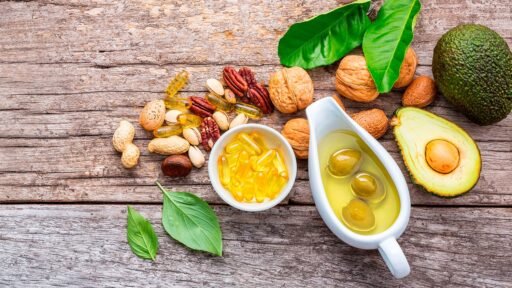Best Probiotic for Gut Health: Top 12 Foods
Your gut deserves love, and probiotics are the key to a thriving microbiome. These live microbes boost digestion, immunity, and even mood. Nexus Mag reveals the best probiotic for improving gut health—kefir tops the list—plus 11 other foods to nourish your gut naturally!
Why Probiotics Matter
Probiotics are live bacteria and yeasts that balance your gut microbiome, supporting digestion, immunity, and mental health. Found in fermented foods like yogurt and kimchi, they restore “good” bacteria, especially after antibiotics. A healthy gut microbiome can reduce inflammation, improve nutrient absorption, and enhance overall wellness.
The Best Probiotic for Gut Health: Kefir
Among the 12 probiotic foods, **kefir** stands out as the best due to its high probiotic content and diversity.
- Why It’s Top: Kefir, a fermented milk drink, contains up to 61 probiotic strains, more than yogurt, per a 2020 study.
- Benefits: Improves digestion, boosts immunity, and may reduce IBS symptoms.
- Uses: Drink 1 cup daily plain or blend into smoothies; choose unsweetened for gut health.
11 Other Probiotic-Rich Foods
These foods also pack a probiotic punch for a healthy gut:
1. Yogurt
Made with live cultures, yogurt promotes gut bacteria growth.
Benefits: Enhances digestion, supports immunity.
Tip: Choose plain yogurt with “live and active cultures”; eat 1 cup daily.
2. Kimchi
A Korean fermented vegetable dish with lactic acid bacteria.
Benefits: Anti-inflammatory, may reduce cholesterol and cancer risk.
Tip: Add ¼ cup to rice or salads; ensure it’s unpasteurized.
3. Pickles
Fermented pickles (not vinegar-based) contain probiotics.
Benefits: Support gut flora, high in antioxidants.
Tip: Choose refrigerated, lacto-fermented pickles; eat 2–3 slices daily.
4. Sourdough Bread
Made with a fermented starter, it contains lactic acid bacteria.
Benefits: Improves blood sugar control, aids weight management.
Tip: Enjoy 1–2 slices as a sandwich base.
5. Sauerkraut
Fermented cabbage rich in probiotics if unpasteurized.
Benefits: Boosts digestion, reduces inflammation.
Tip: Add 2 tbsp to sandwiches; buy refrigerated, raw versions.
6. Kombucha
A fermented tea with bacteria and yeast.
Benefits: Supports detox, improves digestion.
Tip: Drink 4–8 oz daily; choose low-sugar options.
7. Miso Soup
A Japanese fermented soybean paste used in soups.
Benefits: Enhances gut health, rich in antioxidants.
Tip: Sip 1 cup as a light meal; avoid boiling to preserve probiotics.
8. Apple Cider Vinegar
Double-fermented apple juice with natural probiotics.
Benefits: May aid reflux, supports gut flora.
Tip: Mix 1 tbsp in water or dressings; choose raw, unfiltered versions.
9. Certain Cheeses
Aged cheeses like Gouda, cheddar, and cottage cheese contain probiotics if unheated.
Benefits: Support gut and bone health.
Tip: Eat 1 oz with fruit as a snack.
10. Fermented Vegetables
Pickled veggies like escabeche or giardiniera offer probiotics.
Benefits: Improve digestion, provide fiber.
Tip: Add ¼ cup to meals; choose lacto-fermented options.
11. Traditional Buttermilk
The liquid from butter-making, rich in probiotics if not cultured.
Benefits: Boosts gut flora, hydrates.
Tip: Drink ½ cup plain; avoid store-bought “cultured” versions.

How Probiotics Work
Probiotics restore balance in the gut by:
- Promoting “good” bacteria to crowd out harmful ones.
- Enhancing the gut lining to prevent leaks.
- Producing short-chain fatty acids that reduce inflammation.
They’re especially helpful post-antibiotics, supporting a diverse microbiome linked to better health outcomes.
Benefits Beyond the Gut
Probiotics offer whole-body perks:
- Immunity: Strengthen defenses; 70% of immune cells reside in the gut.
- Mood: Improve serotonin production, reducing anxiety per a 2019 study.
- Heart Health: Lower cholesterol and blood pressure.
- Skin: Reduce acne and inflammation via gut-skin axis.
Tips for Choosing Probiotic Foods
- Check Labels: Look for “live cultures” or “unpasteurized” to ensure probiotics.
- Start Small: Introduce one food (e.g., ½ cup kefir) to monitor digestion.
- Make Your Own: Ferment pickles or sauerkraut at home for cost-effective probiotics.
- Consult a Doctor: Before major dietary changes or supplements, especially if on medications.
Supplements vs. Foods
Foods are ideal for natural probiotic intake, but supplements (10–50 billion CFU daily) can help if diet lacks variety. Choose strains like *Lactobacillus* or *Bifidobacterium* with proven benefits, and consult a doctor for personalized advice.
FAQs About Probiotics for Gut Health
What’s the best probiotic for gut health? Kefir, with up to 61 probiotic strains, is the most potent food source.
Can probiotic foods replace supplements? Yes, for most people, if consumed regularly; foods are more cost-effective.
How long do probiotics take to work? Benefits may start in 2–4 weeks, with significant gut improvements in 1–2 months.
Are there side effects? Mild bloating may occur initially; reduce intake if discomfort persists.
Who should avoid probiotics? Those with compromised immunity should consult a doctor first.
Nourish Your Gut Naturally
Kefir leads as the best probiotic for gut health, but yogurt, kimchi, and other fermented foods also transform your microbiome. Add these delicious options to your diet for better digestion, immunity, and mood. Explore more wellness tips in our Lifestyle hub at Nexus Mag.






